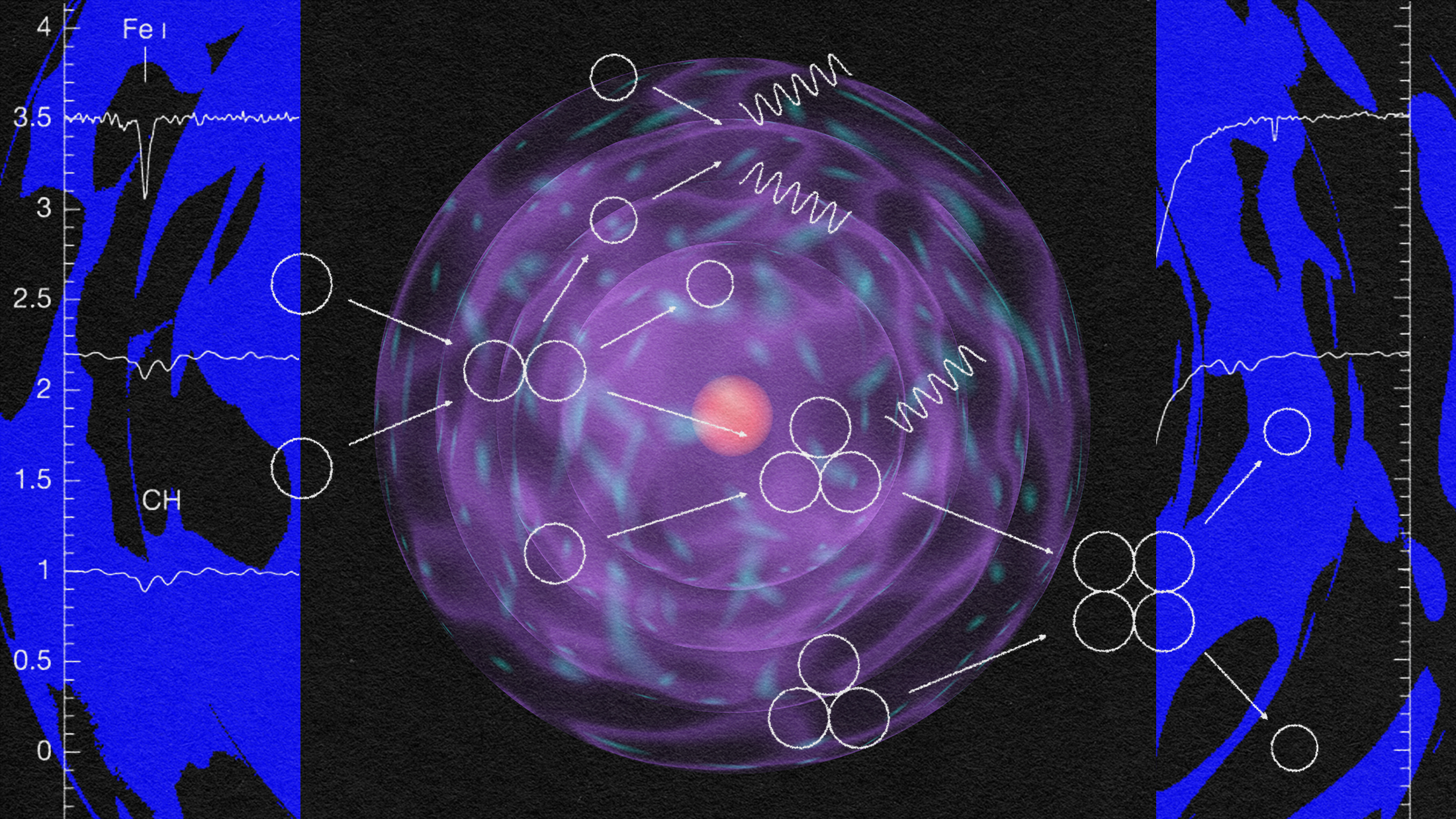Richard Wrangham is a professor of biology and anthropology at Harvard University who studies chimpanzees, and their behavior, in Uganda. His main interest is in the question of human evolution[…]
Sign up for Big Think on Substack
The most surprising and impactful new stories delivered to your inbox every week, for free.
The legendary primatologist would produce a few great observations on how to behave and then would just let you run, he says.
Question: Why did you become interested in working with Chimpanzees?
Richard Wrangham: Well, in 1970, I was a newly minted undergraduate looking for a research project and I discovered about the Chimpanzee project and at that time, I was much more interested in questions about what is responsible for species differences in social organization than I was in anything in particular about close relatives of humans. I wasn't particularly interested in Chimpanzees as a model, or a close relative of humans but simply because they're a fascinating species and it was a very lucky time because Jane Goodall was looking for people to help her in her study, so I wrote to her and in three months later, I think I was in Western Tanzania at her site in Gumby.
Question: What was it like working with Jane Goodall?
Richard Wrangham: She had a young son, Grub, who was then, something like five or six-years-old, and so she was not spending much time at this field site. She was living mostly in another place in Tanzania in Serengeti National Park, or on the edge of it. And so, her direct input was very much producing a few great observations on how to behave and then just letting you run. So, she would say things like, "By all means, connect your data systematically, but if you see something really interesting, make sure you go for that instead of sticking to your formula." And she brought a tremendous sense of intimacy and liveliness to the discussion of the Chimpanzees when she would visit every few months because she was just fascinated with the lives of the individuals. And for people, like myself, who had been trained in an ordinary way in university life where our concern was with enlarging the sample sizes and making sure that you have everything organized in a research design that allows statistical testing, and so on. The frank focus on what particular individual had done and how they seemed to feel about others was refreshing, conceptually enlarging, somewhat brave, so all very good challenge and complementary perspective to a more orthodox training.
Question: What did you discover?
Richard Wrangham: Well, I did my PhD on the feeding behavior of Chimpanzees and I think that was a rather nice thing to be able to study because life is, in many ways, a search energy and Chimpanzees, just like any other species, have as a primary concern just finding calories. And that is a key to understanding an enormous range of behaviors.
So, as I walked about with chimpanzees, I was seeing how they were interfacing with the forest in a very, very direct way and seeing how they had their behavior shaped by this primal need. So, the size of the groups that they were traveling in, the distance they were traveling per day, the amount of energy they had for social interactions, the concern they had for exciting things like hunting monkeys, or having sex, or going on border patrols to defend their areas. All of these were constrained and influenced very, very strongly by their root relationship with food. And unless you understand that, you don't understand the way animals experience the wild. And I think also, you don't understand the way that our ancestors only a few thousand years ago responded to the wild.
So, it's a wonderful foundation for thinking about the influence of the natural world on the more complex, richer forms of social behavior.
Richard Wrangham: Well, in 1970, I was a newly minted undergraduate looking for a research project and I discovered about the Chimpanzee project and at that time, I was much more interested in questions about what is responsible for species differences in social organization than I was in anything in particular about close relatives of humans. I wasn't particularly interested in Chimpanzees as a model, or a close relative of humans but simply because they're a fascinating species and it was a very lucky time because Jane Goodall was looking for people to help her in her study, so I wrote to her and in three months later, I think I was in Western Tanzania at her site in Gumby.
Question: What was it like working with Jane Goodall?
Richard Wrangham: She had a young son, Grub, who was then, something like five or six-years-old, and so she was not spending much time at this field site. She was living mostly in another place in Tanzania in Serengeti National Park, or on the edge of it. And so, her direct input was very much producing a few great observations on how to behave and then just letting you run. So, she would say things like, "By all means, connect your data systematically, but if you see something really interesting, make sure you go for that instead of sticking to your formula." And she brought a tremendous sense of intimacy and liveliness to the discussion of the Chimpanzees when she would visit every few months because she was just fascinated with the lives of the individuals. And for people, like myself, who had been trained in an ordinary way in university life where our concern was with enlarging the sample sizes and making sure that you have everything organized in a research design that allows statistical testing, and so on. The frank focus on what particular individual had done and how they seemed to feel about others was refreshing, conceptually enlarging, somewhat brave, so all very good challenge and complementary perspective to a more orthodox training.
Question: What did you discover?
Richard Wrangham: Well, I did my PhD on the feeding behavior of Chimpanzees and I think that was a rather nice thing to be able to study because life is, in many ways, a search energy and Chimpanzees, just like any other species, have as a primary concern just finding calories. And that is a key to understanding an enormous range of behaviors.
So, as I walked about with chimpanzees, I was seeing how they were interfacing with the forest in a very, very direct way and seeing how they had their behavior shaped by this primal need. So, the size of the groups that they were traveling in, the distance they were traveling per day, the amount of energy they had for social interactions, the concern they had for exciting things like hunting monkeys, or having sex, or going on border patrols to defend their areas. All of these were constrained and influenced very, very strongly by their root relationship with food. And unless you understand that, you don't understand the way animals experience the wild. And I think also, you don't understand the way that our ancestors only a few thousand years ago responded to the wild.
So, it's a wonderful foundation for thinking about the influence of the natural world on the more complex, richer forms of social behavior.
Recorded on March 5, 2010
▸
7 min
—
with





